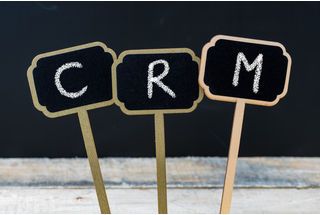CRM Success is Built on Partnerships

Participating in a recent panel discussion in Toronto sponsored by Global Hotel Alliance (GHA) alongside experts from Acxiom, Serenata, Oracle and Cendyn served to be a truly enlightening hour and half on the future of customer relationship management (CRM). Apart from your humble scribe, it was an impressive panel of leaders in this highly technical field with an equally prestigious audience comprising over two dozen CIOs from the world's leading hotel brands.
The program started with an identification of exactly what today's CRM comprises. At a minimum, CRM includes the following in no particular order:
- Data collection and storage of information pertaining to hotel guests
- The ability to access and aggregate this data for the purposes of personalized marketing through email and perhaps social media
- Campaign management tools to effectively undertake this activity
- Triggered event activity from pre- and post-stay
- Analytics, including surveys and guest review analysis
- The ability to access or interconnect data with the guest through point-of-sale activities
- Security to protect this data
- Advanced integration tools and further uses as developed.
All the panel members, as well as the audience, were well-versed in the specifics of CRM from a technical standpoint. And, while these were CIOs of major chains, the same approach applies to any individual independent property – the ability to collect, catalog and utilize guest data as an important part of a hotelier's success.
Knowing your guests' likes and dislikes in advance is an important service component in a contemporary property. Nowadays, it is almost heresy to ask guests checking in if it's their first stay with you when they are in fact frequent visitors! Moving a few steps deeper into CRM, you should strive to learn preferences for room type, F&B, amenities and so on. All of this adds up to a personalization profile that not only makes it easier for the guest to enjoy your property, but also reinforces loyalty.
But that is only the first step in CRM. The real advances come when you start to lever the data to build the top end of the sales funnel. In other words, using what you know about current guests to create trial opportunities for new prospects with a non-negligible return on investment. If you believe that your property's guest profile is indicative of the type of customers who appreciate your product, use this CRM data to go after more likeminded folks.
As an analogy, remember those old cowboy movies from the 50s and 60s where the westbound wagon trains would form a circle as a defensive move? If you look at CRM as only a tool to manage current guest profiles, the number of wagons will continue to get smaller, drawing the circle further inward with each passing year. This gradual decline is inevitable in today's global travel market where consumers are not only available looking for a better deal but also want to explore the farthest reaches of the planet regardless of whether or not they had an exceptional stay at one specific property. There will always be a need to acquire new customers, and CRM is the sniper rifle to past techniques' shotgun approach.
Staying with our analogy, effective CRM keeps your wagons in the circle, and then adds new stagecoaches with each successful implementation of what the data suggests. In other words, use your CRM as a base to fine tune your marketing efforts. This can only come to fruition when IT and marketing departments forge a very close partnership to work together to solve the challenges faced by today's ever complex hospitality environment. Everyone knows, it's not the tools you have but how you use them. Start by getting the departments talking to one another to see how CRM can be leveraged for incredible greats.
(Article by Larry Mogelonsky, originally published in eHotelier on Friday, July 7, 2017)